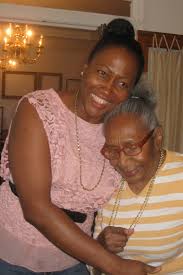First off, what is a care partner? It’s the evolution from “caregiver,” and “caretaker,” recognizing the fact that you and your loved one are in this together. I define being an awesome care partner as when both you and your loved one get to the end of the day and still like each other 🙂 These tips are designed to help you get there!
1. Acknowledge what is. No, this isn’t how you thought is was going to be, and no, it isn’t fair, and no, you definitely don’t have to like it! But it is your reality now. Things aren’t how they used to be, but you do have this moment–use it to create good feelings for both you and your loved one.
2. Make sure your expectations are realistic. Dementia is about more than memory loss; there are additional, more readily evident physical changes too. Most care partners just don’t know that these changes are also part of the disease process, that it’s all connected. These changes include decreased peripheral vision, hearing loss, and skewed depth perception; loss of fine motor skills, balance, and independence; increased difficulty with good (read: safe) judgment and holding on to a thought long enough to carry it through to a meaningful action. Adjust your expectations accordingly.
3. How important is it? Also known as the “So what?” philosophy of dementia care, it goes like this: Dad independently combed his hair and buttoned his shirt, which is obvious because he still has bedhead on the back half, and his shirt is off by a button all the way down. So what? How important is it? This is actually cause for celebration because he did it independently! His fine motor skills are still working! He knew what to do with a comb and buttons! Yay! Make this question and philosophy your mantra, all day, everyday.
4. Pay attention to your body. People living dementia are not able to take care of themselves at a certain point in the disease process. If you can’t help your loved one, who will? Your health is at least as important as your loved one’s! Eat when you’re hungry, drink plenty of water, and promptly attend to aches, pains, or other signs you need to see a healthcare provider.
5. Don’t create learned dependence. Promote as much independence in your loved one as is safely possible, and get with the respite program asap.
6. Sleep. Nothing will restore you quicker, or keep you going longer. Without enough sleep, you will eventually make bad decisions and say things you wish you could stuff right back in your mouth.
7. Be mindful of the environment you create. Keep the environment calm, low-key, and stay positive. You live in this environment, too–why not make it cool and groovy? Conversely, an overstimulating environment can lead to a meltdown.
8. Exercise. If you want the energy and stamina required to keep up with caring for a full-grown adult–as well as yourself–exercise is vital.
9. DO NOT ARGUE. EVER. You will not win, ever. But you will feel worse. And you’ll need to do some repair work on the relationship. Arguing is likely to set a tone for the day that you don’t want to promote. It’s not worth it; just don’t do it.
10. Socialization is important. Attend support groups, talks, church, potlucks, book club, or whatever it is that gives you the chance to socialize with others who are not living with dementia. You need the break, physically and mentally.
11. Take time for yourself every day. At least 30 minutes a day, preferably more. Start with five minutes, if you must, and build up your tolerance for taking time for yourself. Pray, meditate, daydream…focus on yourself and feed your soul.
What makes you an awesome care partner? How do you define it? Share in the comments below!
Christy Turner is the founder of DementiaSherpa.com (CTC Dementia Care Management) and has enjoyed the privilege of working with over 1,045 people living with dementia and their families. Follow on Facebook, Google+, Instagram, Periscope, Pinterest, Twitter, and YouTube. Content varies daily across platforms.

